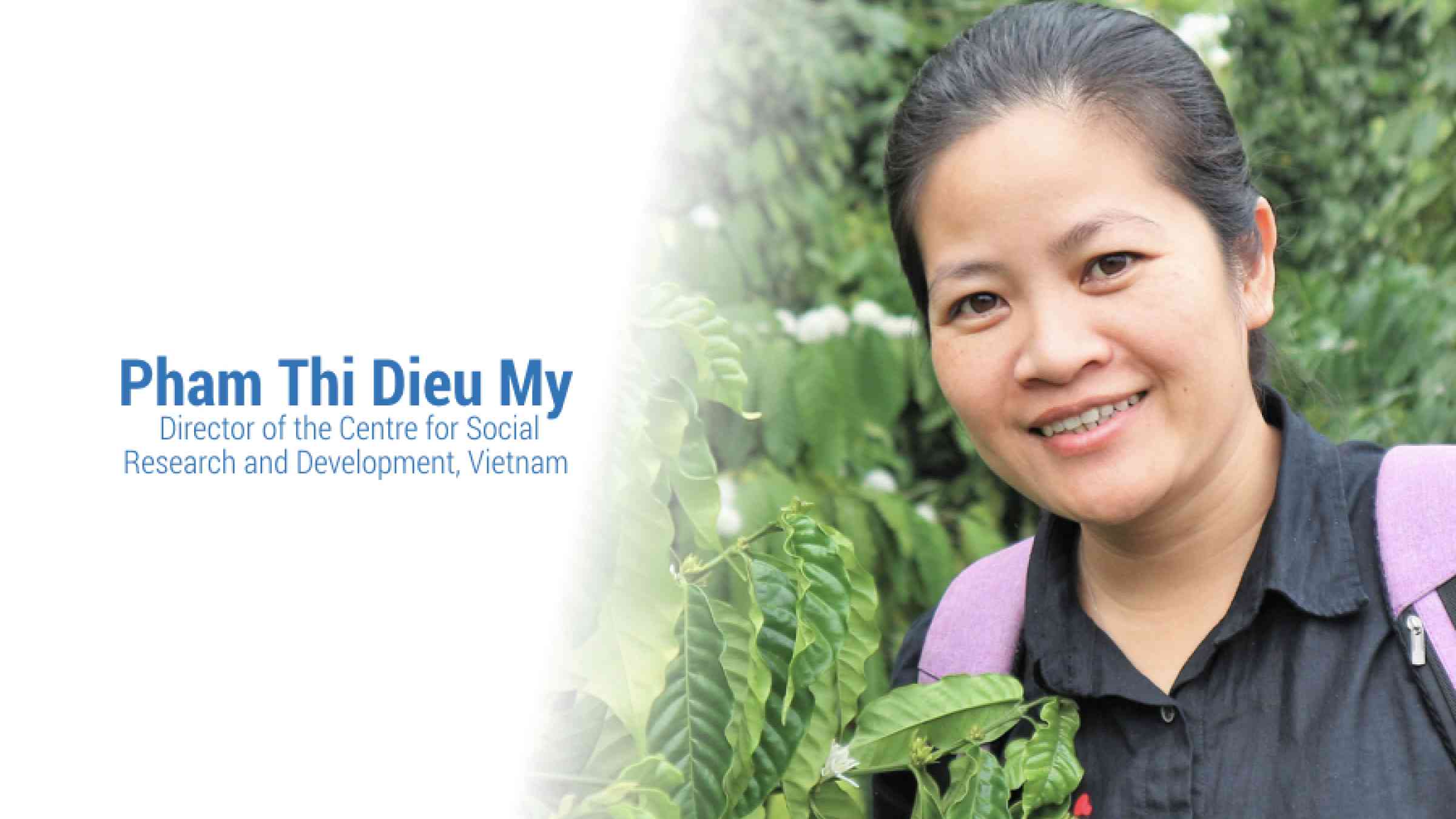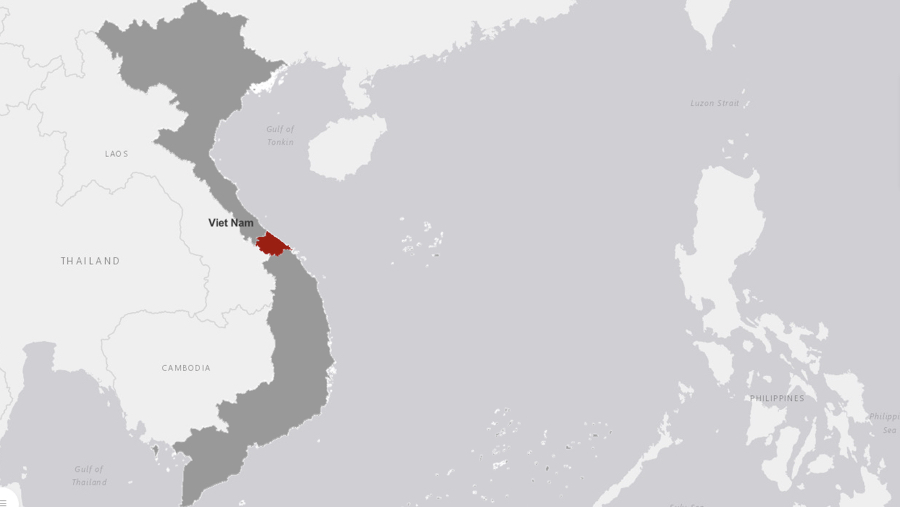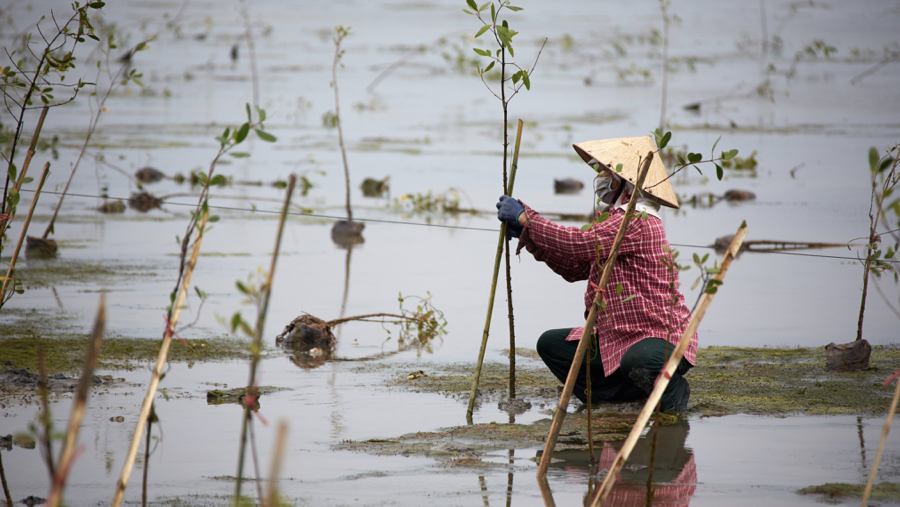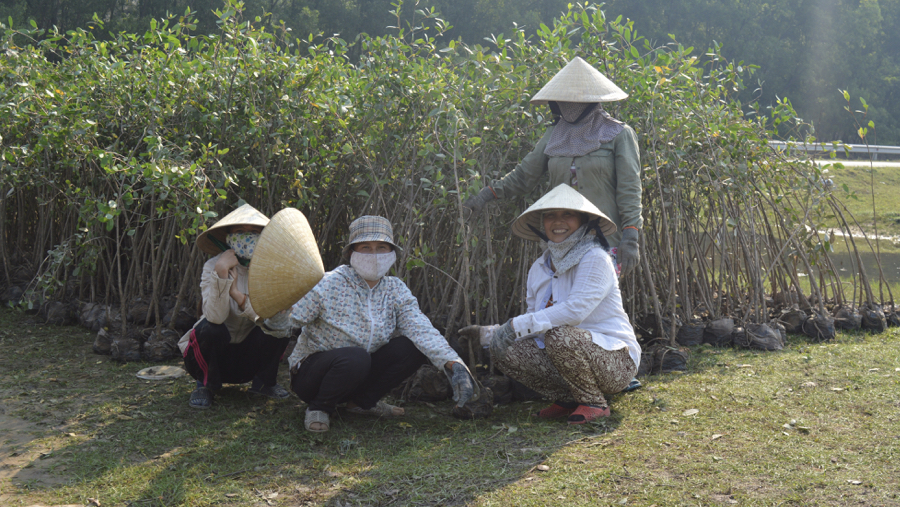Pham Thi Dieu My: “Communities should have ownership & leadership in the project”

Pham Thi Dieu My works on a project called Strong Roots, Strong Women that empowers women for community and coastal ecosystem resilience in Central Vietnam. The initiative received the 2021 RISK Award of the Munich Re Foundation.
Over the past decade My says she has seen a shift in attitudes, behavior and action of local people on climate change and habitat restoration.
“When we started working on climate change,” she says, “it was hard to explain what it was to people, especially with local people and authorities.”
“When we started working on climate change. It was hard to explain what it was to people, especially with local people and authorities.”
Today, My says people talk about climate change often as the impacts become unavoidable. Through a mix of community conversations and habitat restoration, people are more involved and have a better understanding of what is happening and what they need to do.

“We must find a participatory approach,” she says. “We work from the bottom up, we engage the community into our projects and explain the terminology and the knowledge around climate change impacts.”
My says she and her colleagues gain insights about changes in the weather from locals' experience and connect this knowledge to empirical climate data. Through detailed research and a review of other successful projects, the Centre for Social Research and Development found that planting mangroves was a positive entry point to mobilize communities.

“Women are willing to contribute to adaptation measures,” she says. “They are willing to pay in time or in money in order to have a good habitat around their community and make sure that they have better livelihoods.”
Historically Vietnam had large areas of mangroves along the coasts, but economic development and urbanization led to many of them being cleared to make room for cities and coastal developments. To stop this development that was destroying mangrove habitats, My says an important part of the process was increasing awareness in local government and coastal communities about the importance of the unique ecosystem, and the role they play in strengthening livelihoods and protecting communities from storms.
“Mangroves purify water for aquaculture and reduce the wave energy in a storm. They mitigate flood impacts for coastal communities.”
“Mangroves create a better habitat for aquatic species and that leads to more fish,” My says. “Mangroves purify water for aquaculture and reduce the wave energy in a storm. They mitigate flood impacts for coastal communities.”
My says planners in Vietnam have learned the hard lessons of economic development without environmental protection. In October of 2020, some of the worst flooding in decades killed 27 people in Thua Thien Hue province and more than 300 km² of land was flooded, with 70,000 people being exposed to the flood zone (UNITAR).
My’s initiative builds up evidence about the importance of mangroves on every aspect of people’s lives from income to food security to disaster preparedness. The project set-up a community-run mangrove nursery jointly with the local women's union in coastal Hai Duong commune in Phu Vang district.

Building on the work of previous restoration projects, there is now a broad understanding of the importance of mangroves, and now communities are trained about how to propagate and plant mangroves.
“Mangroves will create a good habitat,” she says. “Women often spend their lives, night and day, catching fish either to eat or sell and earn incomes.”
“The communities should be involved at the beginning of the project.”
My says they are planning an ecotourism activity where women can provide services for visits like serving food or offering guided tours of the natural ecosystem. All these elements strengthen the community connection to the mangroves.
“The communities should be involved at the beginning of the project,” she says. “They should have ownership and leadership in the project. When we started talking about mangroves, the communities advised us which side should be good for planting. They had the knowledge to advise us on how to select the best sites.”
My says the project has made progress in reducing disaster risk, but there is still work to be done on gender equality.
“Women still have a limited voice in disaster risk reduction,” My says. “Women work hard to protect their families before, during and after a disaster, but they are sometimes not included in disaster planning.”
“Women work hard to protect their families before, during and after a disaster, but they are sometimes not included in disaster planning.”
She says she has seen meaningful change in policy-making on the disaster management committee that now includes a member from the women’s union.
“This woman representative will raise the voice of women,” she says. “She can highlight the needs and perspectives of their communities.”
Join the Women’s International Network on Disaster Risk Reduction by clicking here.
The Women's International Network on Disaster Risk Reduction (WIN DRR) is a professional network to support women working in disaster risk reduction, in all their diversity. WIN DRR promotes and supports women's leadership in disaster risk reduction across the Asia Pacific region, and aims to reduce the barriers faced by women and empower them to attain leadership and enhance their decision-making in disaster risk reduction. WIN DRR is supported by UNDRR and the Government of Australia.
Learn more
Centre for Social Research and Development – CSRD – Creating resilient communities
Pham Thi Dieu My is the Director of Centre for Social Research and Development (CSRD) and Executive Board Member for the Vietnam River Network (VRN). She works on a project called Strong Roots, Strong Women that empowers women for community and coastal ecosystem resilience in Central Vietnam. The initiative received the 2021 RISK Award of the Munich Re Foundation.